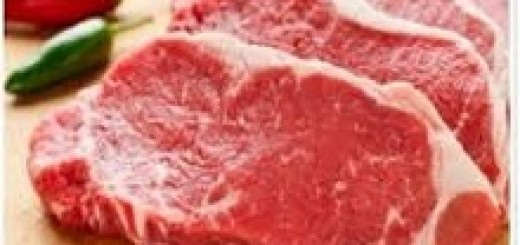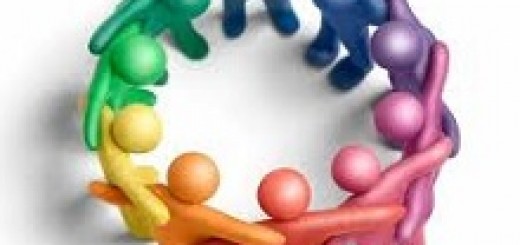By Avner Friedmann
After Moshe prophesied the smiting of the first born, Hashem spoke to Moshe and Aaron and told them[1]: “Speak to the entire assembly of Israel saying: on the tenth of this month they shall take for themselves, each man, a lamb for each father’s house, a lamb per household”. Then, on the first day of Nisan Moshe called all the elders of Israel and said to them[2]: “Draw forth or buy for yourselves one of the flock for your families and slaughter the Pesach-offering”. That Shabbat, the tenth of Nisan, any household that did not already have a lamb went to the market and purchased one. The offerings were brought four days later on the afternoon of the 14th of Nisan and were eaten that evening, on the first Pesach night in history[3].
HaShem specifically chose sheep as the offerings because the ram (Aries) was Egypt’s primary deity. That Shabbat, the Egyptians saw their deity tied to the bedposts of the children of Israel and asked, “What is the purpose of this?” With courage and devotion to Hashem, the Jews explained, “They will be sacrificed as offerings to HaShem our G-d”. The Egyptians were angry and humiliated to be told this by their slaves, but the first born Egyptians fearing that they would die according to Moshe’s prophecy rebelled, thus preventing any harm to come upon the Jews. As a result of this great miracle, the Shabbat preceding Pesach is known as Shabbat Hagadol (The Great Shabbat). On that day an additional act of devotion and courage also took place; all Jews were circumcised and in the merit of these two mitzvoth, both of which involved blood, the Jewish people were redeemed[4].
The Holy Zohar[5] states that the Pesach offering needed to be a lamb because this was the most important of all the Egyptian gods. The Egyptians worshiped and were subject to Aries, the zodiac sign of the ram, which is ascendant in the month of Nisan. That Pesach, the 15th of Nissan was exactly in the middle of the astrological age of Aries in which Aries was at the height of its power. This was the astrological source of Egyptian strength and on that day they reached the zenith of their power. For four days the Egyptians saw their deity bound under the control of Israel and then slaughtered on the eve of Pesach. This was more difficult for the Egyptians to tolerate than all the previous plagues combined.
HaShem instructed Israel to prepare and eat the lamb in a special manner[6]: “You shall not eat it partially roasted or cooked in water; only roasted over fire – its head, its legs, including its innards”. Why roasting as opposed to other ways of cooking? There are several reasons: First, because unlike other forms of cooking, roasting leaves no blood in the animal.
This achieved two purposes; firstly, so that the Egyptians could not say that the Jews ate it with passion and haste while the blood was still in it. Secondly, because the blood constitutes the life force and the soul of the animal; purging it of its blood symbolized its demise. In addition, unlike cooking which is done in a pot, roasting accentuated its scent, thus exposing the Egyptians to the fact that what was dearest and holiest to them was being roasted.
Another reason is that roasting allows for the animal to stay in one piece, so there could be no question in identifying the type of animal; and lastly, roasting leaves the animal with its head hanging down and its back part up, in a position of total humiliation.
As to the actual eating, it was not to be eaten while hungry; this would show a desire for the animal. HaShem also instructed[7]: “They shall not leave over from it until morning, nor shall they break a bone of it”. They were commanded not to eat any part of the bones or break them, so that after the meal they could take the bones and throw them into the market place before the Egyptians. This constituted a further disgrace. About this it states[8]: “And Hashem inflicted punishments upon their gods”. The Holy Zohar[9] states that once the bones were in the market, the dogs came and dragged the bones from place to place. The Jews did not break the bones, but the dogs did. Seeing their deity reduced to such a level of utter humiliation was unbearable to the Egyptians, so they took the bones and buried them, in order that the dogs would not find them. This was the greatest nullification of their deity of all, in that they themselves buried their own god. Through this, HaShem’s honor was uplifted and the forces of the other side (the Sitra Achera) were subdued, says the Zohar.
This whole process was a test of faith for the Jewish people. They needed to pass this test to merit the redemption. It was as if HaShem was saying, “It is not enough just to take the slave out of Egypt. Egypt must also be taken out of the slave”. Before leaving Egypt, they needed to begin the process of taking “Egypt” out of them. This event, the exodus from Egypt, was preparatory to receiving the Torah fifty days later and was the precursor to the true and complete redemption through our righteous Moshiach, may it be speedily in our days, Amen.






















